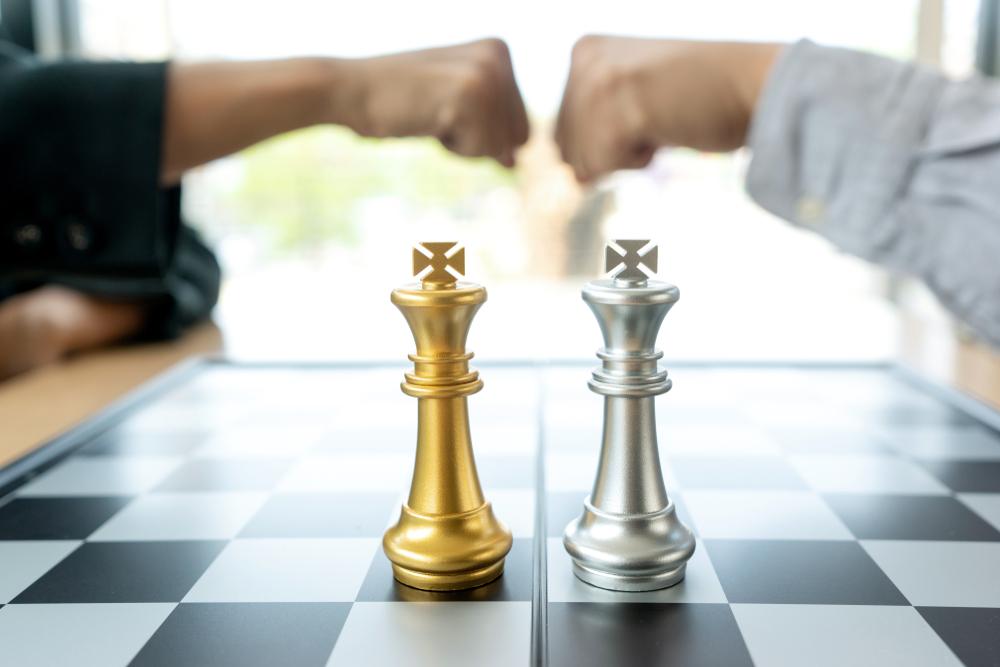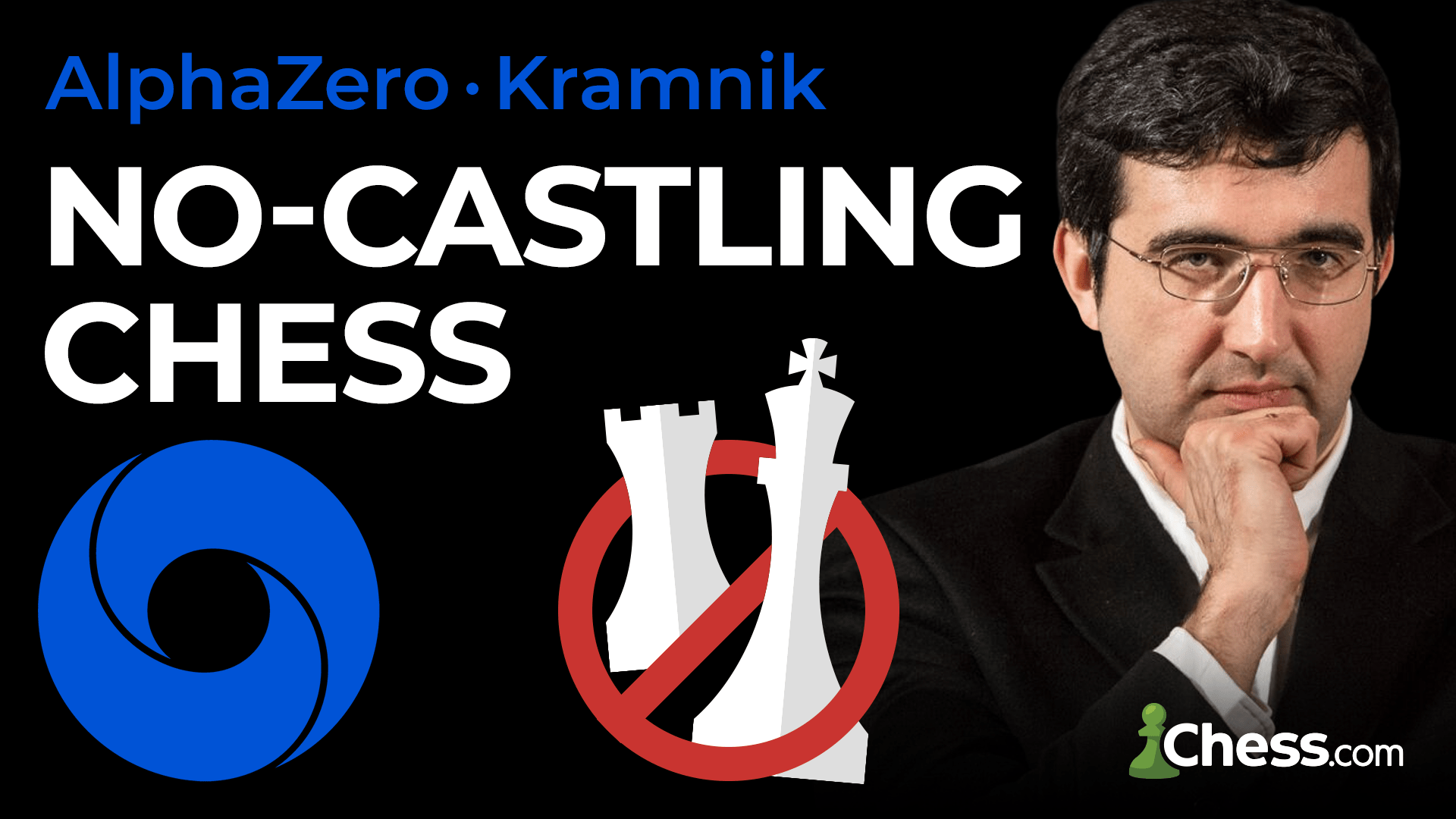
My Crazy Idea To Reduce Draws In Chess
The recent article by Vladimir Kramnik was quite fascinating.
We've all had some weird "what if..." questions, like "what if people could fly?" or "what if there were no gravity?"
Thanks to Kramnik and AlphaZero, we now see what happens to chess if castling is abolished.
Here is one such game with Kramnik's annotations:
Kramnik correctly points out that moves like h2-h4 and a2-a4 will happen in most of the games and the move Ke1-f1 will be as common as castling today. Moreover, Kramnik puts his money where his mouth is. Recently he has started playing this kind of chess even if his opponent was not aware of it:
While the idea of "no-castling chess" is very interesting from an experimental standpoint, as it helps to better understand the nature of chess, I don't see any practical future for it. Look at the preamble of Kramnik's article:
Decisive games in super-tournaments have declined, while the number of games with what I'd call "creative" content is also on the slide. The 2018 world championship match between Magnus Carlsen and Fabiano Caruana, for example, ended with zero decisive classical games.
He is obviously talking about chess on the very top level. Meanwhile, the vast majority of the tournaments in the world simply have no such problem. Therefore it is very questionable if 99.99 percent of players should have the game's rules change to make the top players' games more exciting.
Besides, such a radical decision will throw away thousands of classical games that we all learned. Just imagine if you are showing the "Opera Game" to kids and they ask why Paul Morphy moved his king two squares to the left and the rook suddenly jumped three squares to the right!
The half-solution (like just abolish castling in super tournaments) is also no good. You should remember that thousands of aspiring players try to learn the secrets of chess from games played by super-grandmasters. It would be strange if the top players played a different game from the rest of the world.

I have an idea, but it is so weird that I am sure that many readers will call me crazy. Let me start with a brief historical introduction.
When chess clocks were introduced in the London super-tournament of 1883, they initially caused a lot of confusion. As time passed it became a reality of tournament play. For decades, all the official tournaments were played with what was known as Capablanca's time control: 2.5 hours for 40 moves and then the game would be adjourned.
The world has changed dramatically since Capablanca's time and today we play with a much faster time control. Adjournment of games was abolished and instead "a sudden-death" time control was invented. You see, despite all the developments of chess theory in the last 100 years, the only dramatic change in chess was its time control. The rules of the game have stayed the same for the last 400 years or so.
Meanwhile, we shouldn't forget that time is not the only dimension of chess. Another obvious dimension is number of moves. We can say "Oh, it was such a long game, it lasted almost five hours," or we can convey the same message by saying that the game lasted over 70 moves.
Indeed, besides time constraints in tournament chess, we have move constraints too (the 50-move rule). So, what happens if we slightly modify the move constraints?
Here is my proposal. A draw in chess should happen only in the three following cases:
1. Insufficient material
This is a quite an obvious case. In situations like K-vs.-K or K+B-vs.-K, etc., it is an automatic draw:
2. Stalemate
This is also an obvious automatic end to the game:
3. Perpetual check
This is a situation when a king cannot escape from repetitive checks:
There would be no other way a game can be drawn. Notice that a threefold repetition is not a draw unless it is a perpetual check. Naturally, there are absolutely no draw offers, just like in soccer, basketball or pretty much any other sport.
Now it is time to explain the move constraints. Say it is a 10-round tournament. Then each participant gets 800 moves to complete the tournament. It is 80 moves per game, which is about two times longer than an average game of chess. After each completed game the number of its moves is added to the total number of moves from the previous games. Once a player reaches 800 moves, the tournament is over for him. So, if a player has reached a total of 800 moves by the eighth round, he cannot play the last two games and his opponents will win them by forfeit.
To explain the rationale for this rule, let's take a look at the first-round game from the recent Tata Steel tournament.
It was a very high-quality game, especially for a rapid tournament. Unfortunately, it was also a very boring game. Now let's see what would have happened had the moves-limit rule been applied. After a trade of knight we have a dead-drawn position.
It is not just a dead-drawn position; it is ridiculously dead-drawn position. It is the Atacama Desert of chess!

But how can the players make a draw here? If a draw offer is not allowed and both the threefold repetition rule and the 50-move rules don't exist, then how can a draw be achieved? It can't!
So either one of them will resign, or they will keep playing, which will get them both closer to the dreaded 800-move limit. This position can ruin not just one game, but the whole tournament!
Consequently, as strong players, they would anticipate what's coming well in advance and deviate from this position before it actually happens on the board. For example, White could easily avoid the rooks trade with no damage to his position:
Then Black could easily avoid the trade of queens also with no damage to his position:
The main point is when both players know that the trades will lead to the disastrous Atacama Desert position, they will avoid pointless trades, which might make games more interesting. From the other side, even if such an endgame happens, players will learn how to play them for a win.
Our current world champion, Magnus Carlsen, shows how it can be done:
For players like Carlsen, who despise draws and play till the very last pawn, the move limit shouldn't be an issue at all—but for those who look for trades as an excuse to make a quick draw, that will become a problem!
Some people might object to the move-limit rule because it can potentially ruin the logical path of the game. This is absolutely true. But didn't the introduction of the time control ruin thousands of well-played games? We just get used to it and therefore today we accept a time limit as a natural part of the game.
Let's take a look at the following position. Can you find a forced checkmate in three moves?
Did Reshevsky, one of the best players in the world, prefer checkmate in three or four moves? Well, look what happened in the actual game:
Yes, Reshevsky was in such horrific time trouble that he simply blundered his queen! I can assure you that if there were no time limits in chess, the result of the game would have been totally different!
So, if we accept that a time limit can significantly alter the logic of the game, why can't we accept that a move limit can do the same?
Well, I have news for you: We have already accepted it! Don't believe me? Look at the following games played by very strong grandmasters.
What's going on here? Why did Yevseev agree to a draw two moves before a forced checkmate?
Why is this a draw? Did the rising star of Russian chess IM Volodar Murzin forget for a moment how chess rooks move, and therefore he missed that he could capture black rook in one move?
Does Nguyen respect Vachier-Lagrave so much that he offered a draw instead of checkmating the opponent in two moves?
The answer is the same for all three games. The stronger side ran out of moves due to the 50-move rule.
If we already have certain move limits, why not simply modify them? Such a change would make chess on the top level more entertaining, but unlike any other proposal (like Kramnik's, for example) it would keep the rules of the game exactly the same!
It would be interesting to hear your opinions, so please share them in the comments.







